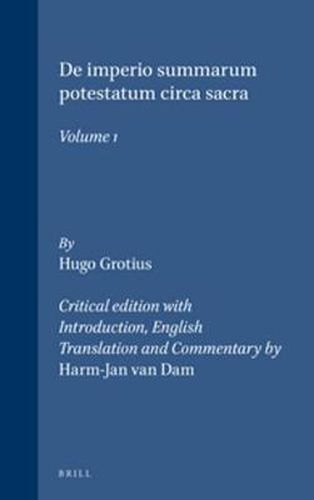Readings Newsletter
Become a Readings Member to make your shopping experience even easier.
Sign in or sign up for free!
You’re not far away from qualifying for FREE standard shipping within Australia
You’ve qualified for FREE standard shipping within Australia
The cart is loading…






This book contains the mature fruit of Hugo Grotius’ political thought on church and state. It was finished in 1617, but Grotius’ arrest prevented publication. For the first time Grotius’ own Latin text is printed here, from two manuscripts. It is demonstrated that the claims made by the publisher of the first edition (1647), the source of all subsequent editions, are false. The first critical edition is provided with an extensive introduction, an English translation, a commentary, and elaborate indices. In an appendix texts concerning its context and genesis are printed. An earlier draft of De imperio was recently discovered. All material from this unpublished work has been integrated here. This fundamental, theoretical text, written for an international public, anticipates many views from later Grotian work.
$9.00 standard shipping within Australia
FREE standard shipping within Australia for orders over $100.00
Express & International shipping calculated at checkout
This book contains the mature fruit of Hugo Grotius’ political thought on church and state. It was finished in 1617, but Grotius’ arrest prevented publication. For the first time Grotius’ own Latin text is printed here, from two manuscripts. It is demonstrated that the claims made by the publisher of the first edition (1647), the source of all subsequent editions, are false. The first critical edition is provided with an extensive introduction, an English translation, a commentary, and elaborate indices. In an appendix texts concerning its context and genesis are printed. An earlier draft of De imperio was recently discovered. All material from this unpublished work has been integrated here. This fundamental, theoretical text, written for an international public, anticipates many views from later Grotian work.